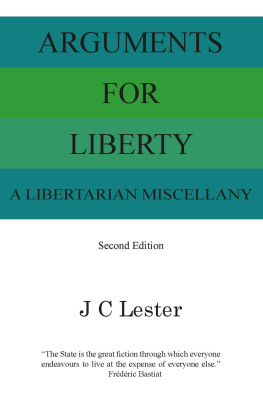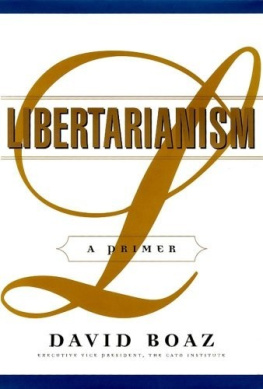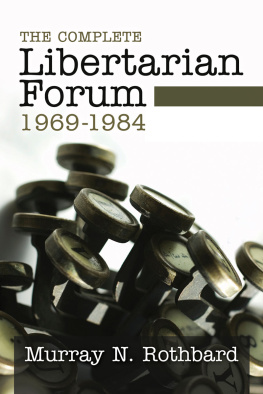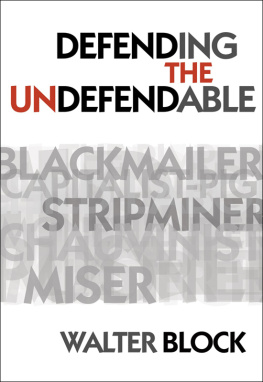Introduction
I n his talk entitled Emulate Ron Paul delivered to the Alabama state convention of Young Americans for Liberty in Auburn, Alabama on April 6, 2013, Lew Rockwell mentioned five points. The first of them, the most important one in my view, was: The subject of war cannot, and should not, be avoided. In this regard Lew went on to say:
First and foremost, Ron is a critic of the warfare state. The war in Iraq, which was still a live issue when Ron first ran for the Republican nomination, had been sold to the public on the basis of lies that were transparent and insulting even by the US governments standards. The devastation in terms of deaths, maimings, displacement, and sheer destruction appalled every decent human being.
Yes, the Department of Education is an outrage, but it is nothing next to the horrifying images of what happened to the men, women, and children of Iraq. If he wasnt going to denounce such a clear moral evil, Ron thought, what was the point of being in public life at all?
Still, this is the issue strategists would have had him avoid. Just talk about the budget, talk about the greatness of America, talk about whatever everyone else was talking about, and youll be fine. And, they neglected to add, forgotten.
But had Ron shied away from this issue, there would have been no Ron Paul Revolution. It was his courageous refusal to back down from certain unspeakable truths about the American role in the world that caused Americans, and especially students, to sit up and take notice.
While still in his thirties, Murray Rothbard wrote privately that he was beginning to view war as the key to the whole libertarian business. Here is another way Ron Paul has been faithful to the Rothbardian tradition. Time after time, in interviews and public appearances, Ron has brought the questions posed to him back to the central issues of war and foreign policy.
Worried about the budget? You cant run an empire on the cheap. Concerned about TSA groping, or government eavesdropping, or cameras trained on you? These are the inevitable policies of a hegemon. In case after case, Ron pointed to the connection between an imperial policy abroad and abuses and outrages at home.
Inspired by Ron, libertarians began to challenge conservatives by reminding them that war, after all, is the ultimate government program. War has it all: propaganda, censorship, spying, crony contracts, money printing, skyrocketing spending, debt creation, central planning, hubris everything we associate with the worst interventions into the economy.
I have already contributed my love letter to Ron Paul in my 2012 book Yes to Ron Paul and Liberty; I mention this only to explain the organization of the present book. It has five sections: I. Foreign Policy, II. Economics, and III. Personal Liberties, and IV. Libertarian Theory. Of course, the five are interconnected. But, if I had to single one out, and I did, I would choose as first and foremost as did Rockwell, and Rothbard, foreign policy. War is the health of the state, said Randolph Bourne, and no words ever said are truer than those. War mongering has implications for economic policy; it is not for nothing that the government engages in debauchment of the currency: it helps them raise more funds than would otherwise be possible for their favorite pastime: throwing their weight around the world. It has implications for personal liberties, too. In no small part is the mischievous war on drugs a handmaiden of imperialism. I place the economics section second, since I tend to see the world more through those eye glasses than any other. The third section of the book focuses on personal liberties, surely an all important subject for all libertarians. The fourth section is about the medical issues that are needful of thought. The final section concerns the backbone of libertarian thought, its theories and core.
I thank Lew Rockwell for inviting me to put together a series of columns I wrote for LewRockwell.com over the years. I thank Stephan Kinsella and William Barnett II for their permission to include in this book essays I have co-authored with them, respectively.
Ron Paul, and Lew Rockwell for that matter, are hardly the only ones who have been faithful to the Rothbardian tradition. Murray, my friend for many years, my mentor, my teacher, my inspiration, has motivated an entire generation of libertarians, and Austrian economists, to promote the glorious Austro-libertarian philosophy. This book is in a small way devoted to that goal. This book is dedicated to the memory of that great man, Murray N. Rothbard.
Walter Block
New Orleans, 2014
Index
9/11/01, 171
failure of FBI to protect against, 173
and gun control, 172
Abolitionists, 187, 189
Abortion, 18182
Adams, John, Quincy, 30
Aggression, 22, 24, 103, 160
as distinct from defense, 2425
Aggressor, 25
nation, 25
Anarcho-libertarian, See Libertarian
Animals. See Private property rights; hunt farms
An Inquiry into the Nature and Causes of the Wealth of Nations (Smith), 53, 56
AIDS, 83, 143, 170
Airport security, 5962
Anarchy, State and Utopia (Nozick), 193, 196
Arbitration, private, 36
Army, standing, 174
Atlas Shrugged (Rand), 68, 168
Barrier to entry, 111
Becker, Gary, on incarceration of blacks, 132
Benevolence, 5253, 57, 70
Black market. See Drugs
Bourne, Randolph, on war is the health of the state, 16
Boxing 4748, 127, 138
Broken window fallacy, 83
Bush, George W. (President), 29, 32, 16668, 172, 174
compassionate conservatism, 166, 168
empire, 174
Business failures, 89
Capitalism, 53, 54, 6768, 71, 98, 111, 178
tends toward income equality, 57
Charities, 143, 166, 168
American Red Cross, 83, 140, 143, 17071
churches, 16768
donors, 166
faith-based initiatives, 166
non-profit organizations, 82
private, 167, 169
Salvation Army, government money means government control,16768
supported by Wal-Mart, 8283, 143
to Hurricane Katrina victims, 143
Coercion, 43, 46, 103
Competition, 49, 51, 61, 70
Confederacy, 3839, 187
Confederate states, 38, 18890
Constitution, 2728, 205
Counterfeiters, 65
Crime rate, 45
Currency. See Money
Danneskjld, Ragnar, 68, 101, 168
Death by Government (Rummel), 137
Death penalty, 19396
Defense, as distinct from aggression, 2425
Defensive violence, 22
Democracy, 199200
Democracy: The God that Failed (Hoppe), 199
Deontology, 67, 136
Discrimination, 18486
racial, 130
Drugs, 13132, 136
laws, 135
legalization, 131, 134, 137
black market sales not taxed, 131
See also Prohibition
Economics in One Lesson (Hazlitt), 204
Employee-employer relationship, 8889, 9496, 10102, 106, 110
Employment protection laws, 110
Employees, 96
Economic development, 5354, 74
Entrepreneurs, 51, 56, 70, 75, 80, 105
Environmentalism, 69, 71, 173
Alaska, 173
free market, 70
Ehrlich, Isaac, on executions, 194
Executions, 194, 198
due process for, 198
Farewell Address (George Washington), 30, 35, 174
Federal Reserve Bank of Dallas, 66
hosted at Association of Private Enterprise Educators (APEE), 6668
Federal Reserve System, 65, 67, 111
Females. See Women
Feminism, 11517, 12127, 182
effect on boys, 122
glass ceiling, 123, 124
homemaking, 123
Take Our Daughters to Work Day, 121, 123
Fiat currency. See Money
Force, 30, 179, 190
Foreign policy, 35











